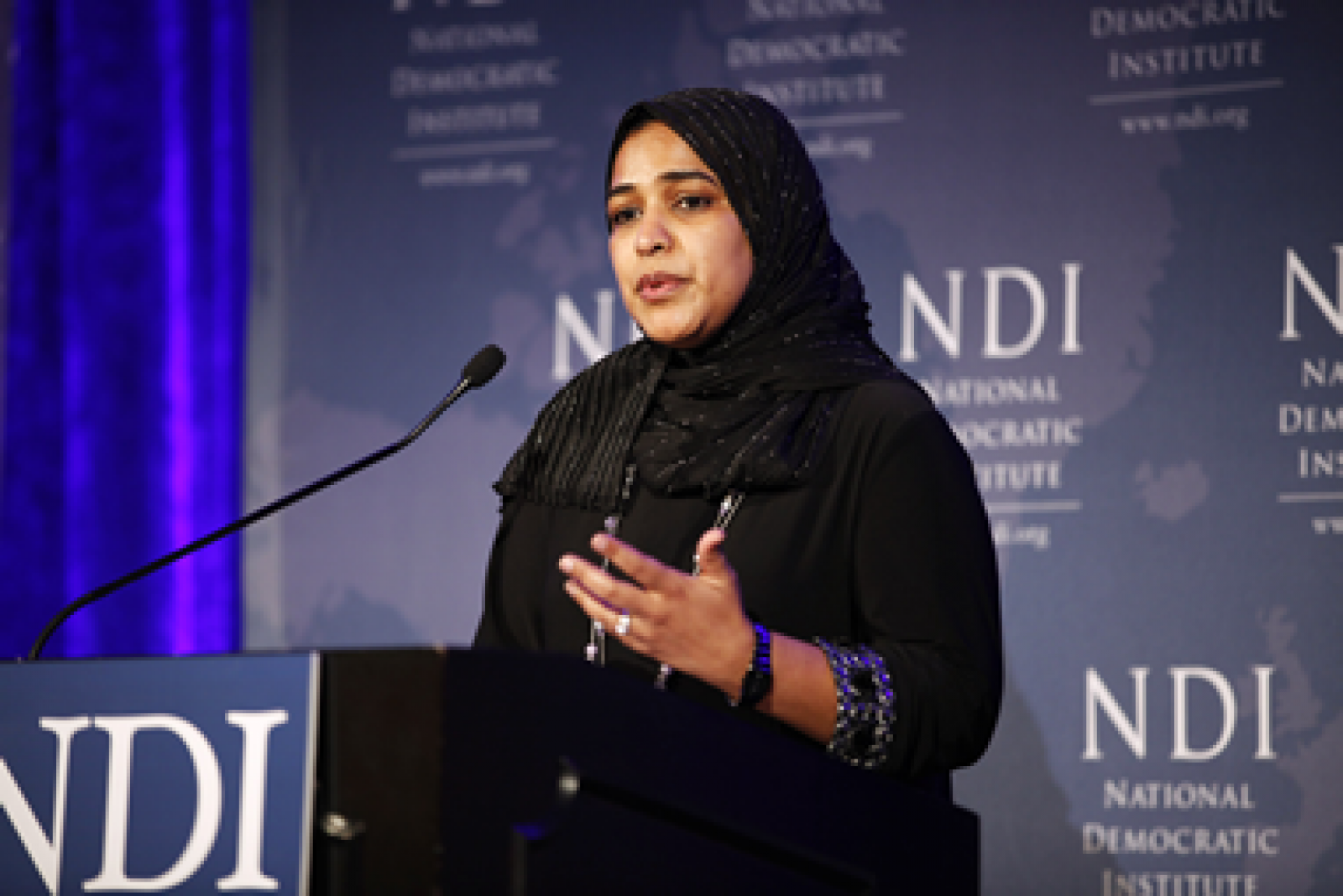
SHARE
Hodan Ahmed and her family were forced to flee Somalia in 1991. The civil war that drove them from their home would go on for two decades. Ahmed live abroad in India and then in Kenya, where she got her education and began her career, but her dream was to return to Somalia to give her children the chance to grow up where she could not.
When, in 2003, she finally was able to revisit Mogadishu, it was a demoralizing experience. “I was devastated by the level of destruction,” Ahmed said. “I could not believe what had become of the capital city of Somalia. The whole city was turned into IDP [internally displaced person] camps, and women and children were facing intolerable suffering. All because of warlords who were hungry for power.”
The conditions inspired Ahmed to launch a career that would allow her to help those in her home country. She began working with Norwegian People’s Aid and the United Nations Population Fund, which focused on such issues as female genital mutilation and educating youth about HIV and AIDS. However, she found that the advocacy efforts of these and other civil society organizations created awareness about important issues but not necessarily solutions in the Somali parliament. “These things were never moving forward from there,” she said of the advocacy efforts.
During the years of conflict, civil society organizations organized by women helped provide many services that were traditionally in the purview of government, such as health care, education and community development. But Somali women still were largely isolated from formal political and peacebuilding processes, and faced huge barriers to achieving positions of power.
Ahmed’s desire was to see women activists and women parliamentarians come together to advance the causes they both supported. And that led her to NDI, where she has worked since 2010 to support Somalia’s legislative strengthening program. In addition to helping women parliamentarians master the basic requirements of being a legislator in Somalia’s new parliament, the program worked to bring the parliamentarians together with civil society organizations to advocate for women’s issues. Those efforts helped lead to a constitutional provision banning female genital mutilation. But Ahmed found that even women in parliament had limited resources, and there was still more work to be done to make the efforts of women parliamentarians and civil society more cohesive.
To help sharpen her skills, Ahmed applied for the Andi Parhamovich Fellowship, established in 2007 in honor of NDI staffer Andi Parhamovich, who was killed in Iraq. The annual award brings a young woman from an NDI field office or partner organization to Washington for three months to conduct research for a project that aims to further democracy and expand women’s political participation in her country.
Ahmed used the time to develop a program to give women the leadership skills needed to participate in Somali politics and the peacebuilding process. She met with women’s organizations, U.S. legislators and their staffs, the director of the Maryland General Assembly women’s caucus and NDI staff, among others, to learn effective ways to bring women parliamentarians and women’s groups together to identify issues of common concern, such as peacebuilding, health care and education, and help them form coalitions to advocate more effectively.
On June 7, Ahmed returned to NDI’s Somalia office, located in Nairobi, Kenya, to begin putting her program to work.
“When I’m talking about coalition building, I would love to see civil society and women parliamentarians working together, because [they] go hand in hand,” she said. “Women in civil society have been playing the key role. They were doing everything basically that the government was supposed to do, so women in the parliament feel threatened by these women. And so to bring them together is my hope.”
Ahmed said one of the highlights of her time in Washington was a trip to Annapolis to meet with the executive director of the Women Legislators of the Maryland General Assembly. While there she sat in on a plenary session of the Maryland Senate during a debate on campaign finance reform.
“I sat there and I closed my eyes and I said, ‘Can I see the picture of Somalia here?’ and I was struggling to find any, and I didn’t,” said Ahmed. “And I said ‘five years?’ and I didn’t. And I said ‘10 years? Possibly’...It gave me the opportunity to see how legislatures really function democratically.”
Ahmed also plans to develop a training manual for women parliamentarians to help them learn the basic functions of governing and basic leadership skills.
She also wants to make sure women get the chance to participate equally in parliamentary training, and she hopes to hold sessions specifically for women. “The culture is a challenge to women,” Ahmed said. “Sometimes when there is a debate, women don’t participate because the culture is, ‘The man is talking, we will just wait until he finishes.’”
Would Ahmed return to Somalia to live? “I think the time is coming now, and I will be the first person there,” she said.
“The people of the diaspora, I encourage them to come home and see what the life is there,” Ahmed continued. “You have an idea, [but] you haven’t been there for a long time. There is so much you can do for Somalia and its people. Every Somali has a significant role to play, so when you come back home it will give ideas and direction about what is your role in rebuilding a just and peaceful Somalia.”
Ahmed, who spoke at NDI’s Madeleine K. Albright luncheon on May 29, is the fifth recipient of the Parhamovich award. Past recipients hailed from Iraq, Nepal, Liberia and Kosovo.
Read more:
- 2013 Madeleine K. Albright Luncheon and Panel»
- Learn more about the Andi Parhamovich Fellowship»
- Kosovo Fellow to Connect Women Leaders at Local, National Levels»
- Research Shows Somali People Are Eager to Engage in a New Way Forward»
Published July 2, 2013


